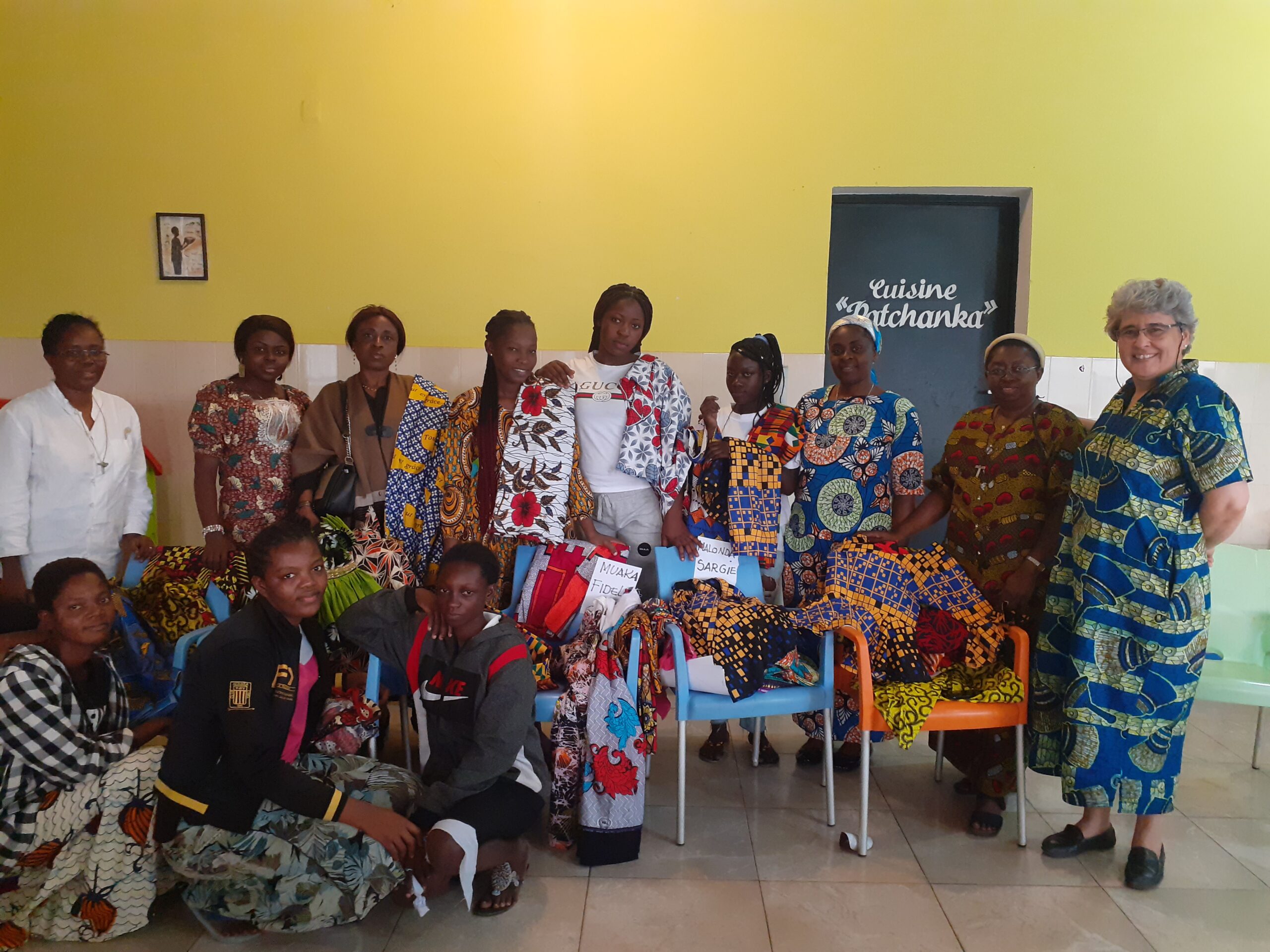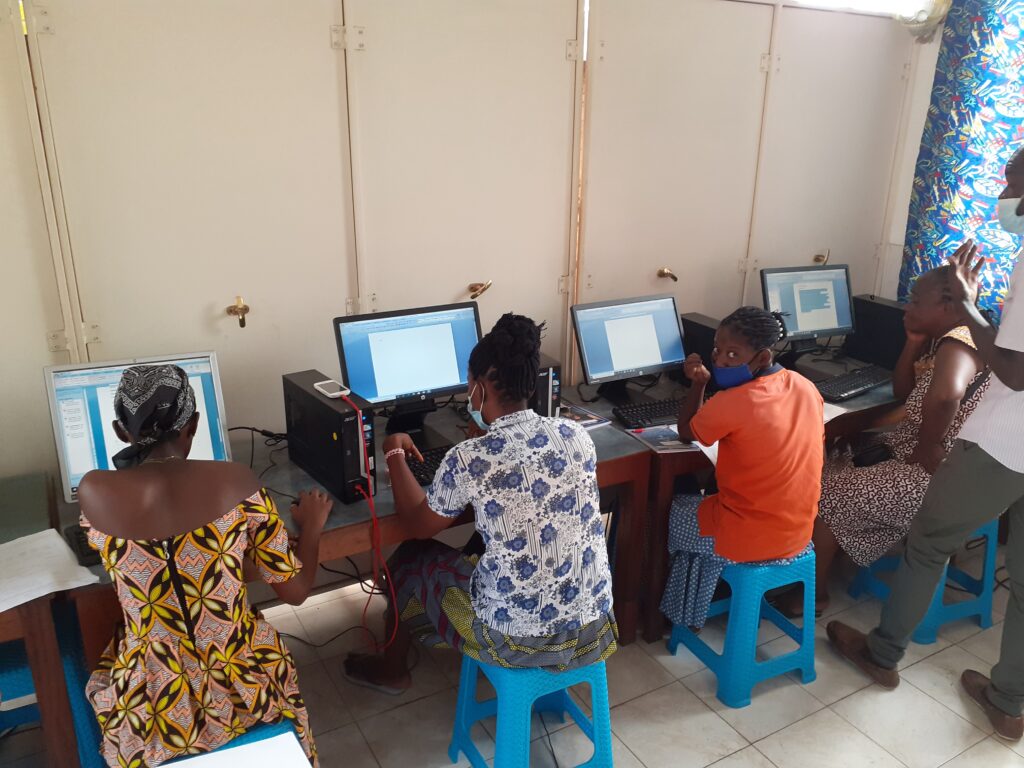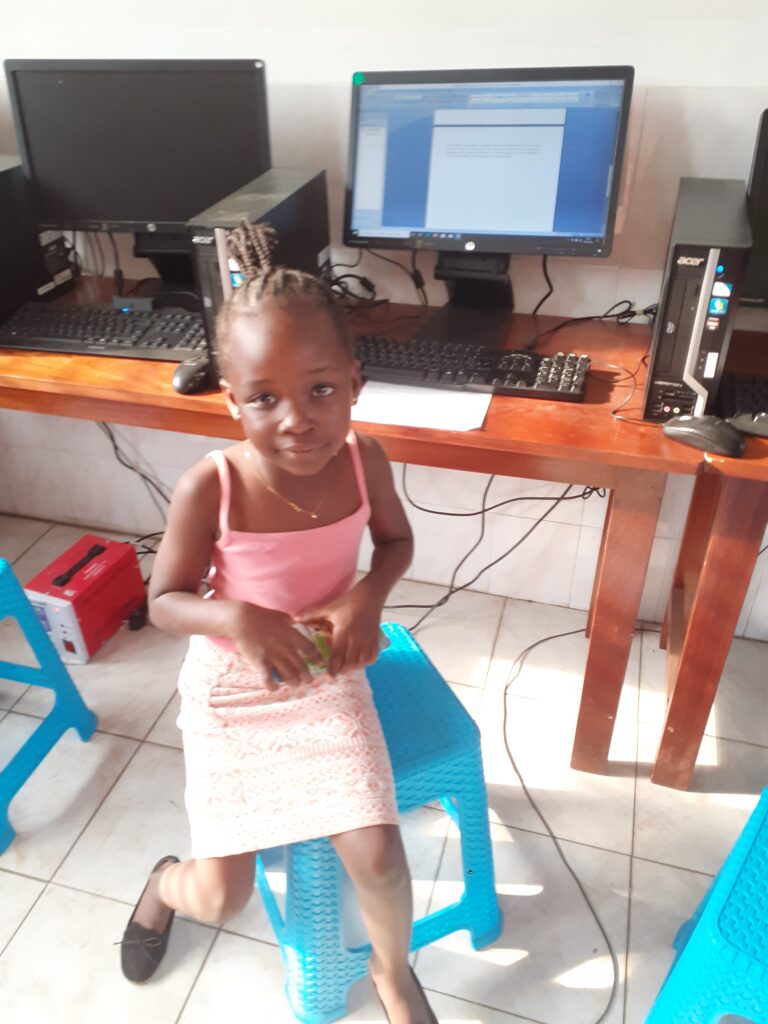
25 May SOCIAL CENTER SAINT RAPHAELLA MARY. RD Congo
Santa Rafaela Social Services Center began in Kinshasa in the 90’s as a literacy center for youth and for the mothers in the neighborhood who were unable to attend school. The literacy program has always been combined with some activity which would help them to develop skills which would act as resource for them to help support their families. We have carried out several different activities with them: soap making, cooking. sewing, etc. The results have always been satisfactory, and thanks to this, many women have been able to provide for their families.
Currently in the center there are 21 women, and this year 5 men have joined them, for we offered computer classes, and they asked to be permitted to enroll. This is a center for non-formal education, where we try to give a comprehensive education. This year as an innovation, on Mondays and Thursdays we offered computer classes, and on Tuesdays and Thursdays French and dressmaking.
The principal objectives of this non-formal education are:
- Empowerment of women, helping them to be independent, free, without complexes, raising their level of self-esteem and enabling them to manage their own lives and that of their families.
- Literacy: Learning to read and write in French and Lingala.
- Learning to use patterns and sew simple kinds of skirts, shirts, pants and dresses.
- Health education: sexually transmitted diseases abuse, gender-related violence, reproductive health.
- Learning to cook economically, using different recipes that vary according to local context.
- To form women who are aware of the ecological problems that we face in the city of Kinshasa, and who are able to do their part to care for the Earth.
- To form Christian women, committed in their respective communities (many belong to Christian sects.)
The people who participate in the formation are very happy. There is real progress and, above all, there is improved self-esteem; they become financially independent, and their quality of life improves as well as that of their children. Having learned to read and write, they are regarded in their families with a new respect, which they had lacked previously. They feel valued and more able to function well in society. Some women come carrying their children on their backs, as they have no one with whom to leave them This project is open to all, no matter which tribe or religion the person belongs to.
The formation is carried out in the classrooms of the school and in an all-purpose room that was built expressly for this social center, and it is where these training courses and the dressmaking takes place.
Now we are trying to make known the Global Compact on Education with its 7 commitments. It is good to note that this project preceded the compact by many years, and it responds exactly to the challenges: focus on the person, women as priority, openness, care for our common home, participation of the family, etc.
The Global Compact on Education gives us an impetus to continue to encourage this center, and to be creative and to offer up-to-date educational opportunities corresponding to the era and the world in which we live.
Ana Gutiérrez, aci



